SUMMARY
This is AI generated summarization, which may have errors. For context, always refer to the full article.
![[Vantage Point] Quo vadis, Dennis?](https://www.rappler.com/tachyon/2022/06/quo-vadis-dennis-uy-June-15-2022.jpg)
Dennis Uy, outgoing President Rodrigo Duterte’s fair-haired “tycoon,” and one of his largest campaign contributors, is shopping for buyers for his high-value assets, one of which – the Malampaya gas field – has already been reserved for ports magnate Enrique Razon Jr.
Razon’s Prime Infra Holdings, Inc. has confirmed that deal is done. Razon also bought some of Uy’s shares in his casino businesses in Cebu and Clark, coming on the heels of Uy’s sale of his 100% share in logistics venture 2GO Group to the SM group.
From buying spree to selling spree: that is as accurate as I can get to describe Uy’s foray in high-stake business. What went wrong? Let’s take a quick peek at some of Uy’s latest company profiles which Rappler obtained from trusted sources:
P-H-O-E-N-I-X Petroleum Philippines, Inc. (PSE:PNX)
Updated: 10 June 2022
Last price: P9.84
Market cap: P14.2B
1Y return: -24.9%
Founded: 2002
Employees: 654
CEO: Bong Fadullon
Fundamentals summary:
Last reported earnings: Dec 30, 2021
Revenue: P132.28B
Cost of revenue: P124.42B
Gross profit: P7.9B
Other expenses: P8.9B
Earnings: P-1.1B
Earnings per share (EPS): P-0.73
Gross margin: 5.95%
Net profit margin: -0.80%
Debt/Equity ratio: 225.3%
P/E ratio: -13.5x
P/S ratio: 0.1x
Risks:
Earnings have declined by 39.7% per year, over the past 5 years.
Interest payments are not well covered by earnings.
Overleveraged.
Chelsea Logistics and Infrastructure Holdings (PSE:C)
Updated: 10 June 2022
Last price: P1.39
Market cap: P2.5b
1Y return: -55.2%
Founded: 2016
Employees: 2,041
CEO: Chryss Alfonsus Damuy
Fundamentals summary:
Last reported earnings: Mar 30, 2022
Revenue: P4.61b
Cost of revenue: P4.99b
Gross profit: P-372.7m
Other expenses: P3.7b
Earnings: P-4.1b
Earnings per share (EPS): P-2.25
Gross margin: -8.08%
Net profit margin: -88.92%
Debt/Equity ratio: 301.0%
P/E ratio: -0.6x
P/S ratio: 0.5x
Negative shareholders’ equity.
PH Resorts Group Holdings (PSE:PHR)
Updated: 10 June 2022
Last price: P1.09
Market cap: P7.9B
1Y return: -43.5%
Founded: 2009
Employees: 24
CEO: Raymundo Martin Escalona
Fundamentals summary:
Last reported earnings: Mar 30, 2022
Revenue: P1.08M
Cost of revenue: P8.62M
Gross profit: P-7.5M
Other expenses: P468.1M
Earnings: P-475.6M
Risks: Earnings have declined by 62.3% per year, over the past 5 years.
Overleveraged.
DITO CME Holdings (PSE:DITO)
Updated: 10 June 2022
Last price: P4.07
Market cap: P57.7B
1Y return: -57.6%
Founded: n/a
Employees: 27
CEO: Dennis Uy
Fundamentals summary:
Last reported earnings: Mar 30, 2022
Revenue: P3.51B
Cost of revenue: P1.79B
Gross profit: P1.7B
Other expenses: P14.2B
Earnings: P-12.5B
Earnings per share (EPS): P-0.89
Gross margin: 49.12%
Net profit margin: -354.87%
Debt/Equity ratio: -725.6%
P/E ratio: -4.6x
P/S ratio: 16.3x
Risks:
Earnings have declined by 71.5% per year, over the past 5 years.
Has less than one year of cash runway.
Shareholders have been substantially diluted in the past year.
These numbers demonstrate Uy’s financial predicament. He has bitten more than he could chew. Note how his companies’ assets are swallowed by their gargantuan debts, leading to a hemorrhaging bottomline. By and large, this is one of the pitfalls of highly leveraged companies. They have to spend more money to make more money. And if their cash flows outstrip their spendings, they have to borrow from banks to fund their expansions.
In Dennis Uy’s case, most of his companies’ assets cannot cover for what they owe.
DITO CME and the capital market
Uy has also tried to source out financing from the capital market, and this too has failed miserably.
To raise funds for the expansion of Dito Telecommunity (a joint venture company among Uy’s Udenna Corporation, Chelsea Logistics Holdings Corp., and China Telecommunications Corporation), its holding company DITO CME Holdings decided to go into an P8B stock rights offering (SRO) this January. The SRO, underwritten by China Bank Capital Corp., wasn’t too well received by investors. Despite a denial issued by company officials that such is the case, DITO CME and China Bank Capital canceled the SRO to the consternation of those who had already bought shares. The Philippine Stock Exchange (PSE) was so enraged by the decision that it decided to slap a P35-million penalty each on the two companies.
The withdrawal of the SRO has shaken the integrity of the capital market which is already unsteady, what with the numerous scandals it has to deal with over the years. A PSE insider says that DITO CME and its underwriter’s action was “so irresponsible that it deserves more than the maximum penalty” so much so that “the PSE management had to engage external legal counsels to review the case.” The PSE source explains that DITO CME and China Bank Capital defied the Securities Regulation Code, its Implementing Rules and Regulations, and the Consolidated Listing and Disclosure Rules of the Exchange when they canceled DITO’s SRO.
This episode illustrates how unattractive Dito Telecommunity has become to most investors. Is it reflective of the person who owns the company? He may not like it but Uy’s ascent to the corporate mountaintop runs parallel to Duterte’s rise to power. Being closely associated with Malacañang doesn’t necessarily translate into business success.
What is happening to Uy has a precedent. Remember Rodolfo Cuenca of the Construction Development of the Philippines (CDCP) and Ricardo Silverio of Toyota Motors? Both were cronies of the late dictator Ferdinand E. Marcos, father of president-elect Ferdinand “Bongbong” Marcos Jr. Both Cuenca and Silverio had used the Marcos badge in securing lucrative business deals. Both companies became mired in debt and even the elder Marcos couldn’t do anything when creditor banks took over their respective businesses.
Luckily for Uy, what he has are high-value assets which can be turned around by those willing to take the risk enumerated in the data above. Selling them to the highest bidder in time for the new administration’s takeover in July could provide him with fresh cash. On its divestment plan, Udenna cited return of investor confidence amid easing virus curbs as having stoked “renewed interest in discussing several partnership and strategic alliance opportunities with the Group.”
With this latest development, it is not far-fetched to say that Uy’s attempt to be known as an astute entrepreneur has taken a big hit. His audacity in building an empire in a dizzying pace has raised eyebrows from Manila’s commercial elite.
Since 2016, Uy has either taken over or invested in more than a dozen companies. His foray into capital-intensive sectors traversed telecoms, casinos and real estate, as well as energy and shipping. It’s hard to imagine that only about eight years ago his oil-trading business in Davao was flagged for fuel smuggling. He sought the support of his longtime friend and then-Davao City mayor Duterte who advised him to stand up against bullies.
Uy has consistently denied that the outgoing president has a direct hand in his businesses, but his friend’s advice worked. He was eventually exonerated of smuggling charges and rolled on to quadruple the profit of his Phoenix Petroleum Philippines through the end of 2018 or in a short span of five years.
In various interviews, he claimed that he has gained the toughness Duterte had been trying to instill in him. “If you survived petroleum and shipping, it trains you to be battle-ready…in petroleum, to get your P1 margin, you watch everything from storage to trucking, and it’s common to give credit and deal with currency and oil price fluctuations.”
Now, Dennis Uy would need extra toughness to move on without his friend Duterte in Malacañang having his back. – Rappler.com
Val A. Villanueva is a veteran business journalist. He was a former business editor of the Philippine Star and the Gokongwei-owned Manila Times. For comments, suggestions email him at mvala.v@gmail.com.
Add a comment
How does this make you feel?
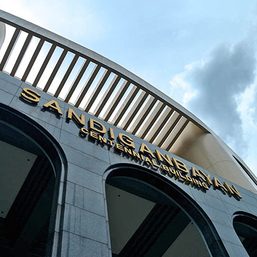
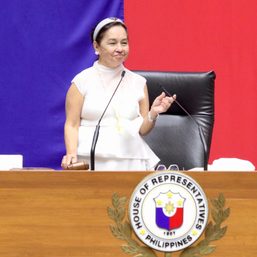
![[ANALYSIS] The Reed Bank gaffe and misunderstanding Malampaya](https://www.rappler.com/tachyon/2023/05/The-Reed-Bank-Gaffe-and-Misunderstanding-Malampaya.jpg?resize=257%2C257&crop=271px%2C0px%2C720px%2C720px)
![[OPINION] Malampaya plus 15: A tale of the lesser evil](https://www.rappler.com/tachyon/2023/05/imho-malampaya-lesserevil.jpg?resize=257%2C257&crop=286px%2C0px%2C720px%2C720px)
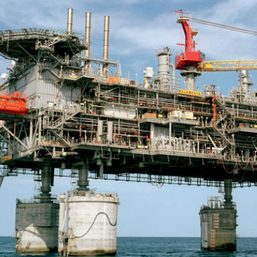

![[The Slingshot] Alden Delvo’s birthday](https://www.rappler.com/tachyon/2024/04/tl-alden-delvo-birthday.jpg?resize=257%2C257&crop=263px%2C0px%2C720px%2C720px)
![[EDITORIAL] Ang low-intensity warfare ni Marcos kung saan attack dog na ang First Lady](https://www.rappler.com/tachyon/2024/04/animated-liza-marcos-sara-duterte-feud-carousel.jpg?resize=257%2C257&crop=294px%2C0px%2C720px%2C720px)
![[Newsstand] Duterte vs Marcos: A rift impossible to bridge, a wound impossible to heal](https://www.rappler.com/tachyon/2024/04/duterte-marcos-rift-apr-20-2024.jpg?resize=257%2C257&crop=278px%2C0px%2C720px%2C720px)

![[ANALYSIS] A new advocacy in race to financial literacy](https://www.rappler.com/tachyon/2024/04/advocacy-race-financial-literacy-April-19-2024.jpg?resize=257%2C257&crop_strategy=attention)
![[ANALYSIS] Search for stocks that continue to sizzle](https://www.rappler.com/tachyon/2024/04/search-stocks-that-sizzle-April-5-2024.jpg?resize=257%2C257&crop_strategy=attention)
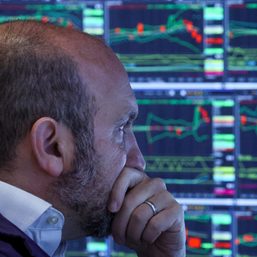
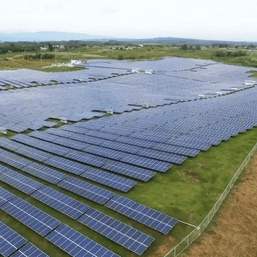
![[ANALYSIS] Concern about the right trading call during Holy Week](https://www.rappler.com/tachyon/2024/03/Concern-about-right-trading-holy-week-March-22-2024.jpg?resize=257%2C257&crop_strategy=attention)
There are no comments yet. Add your comment to start the conversation.